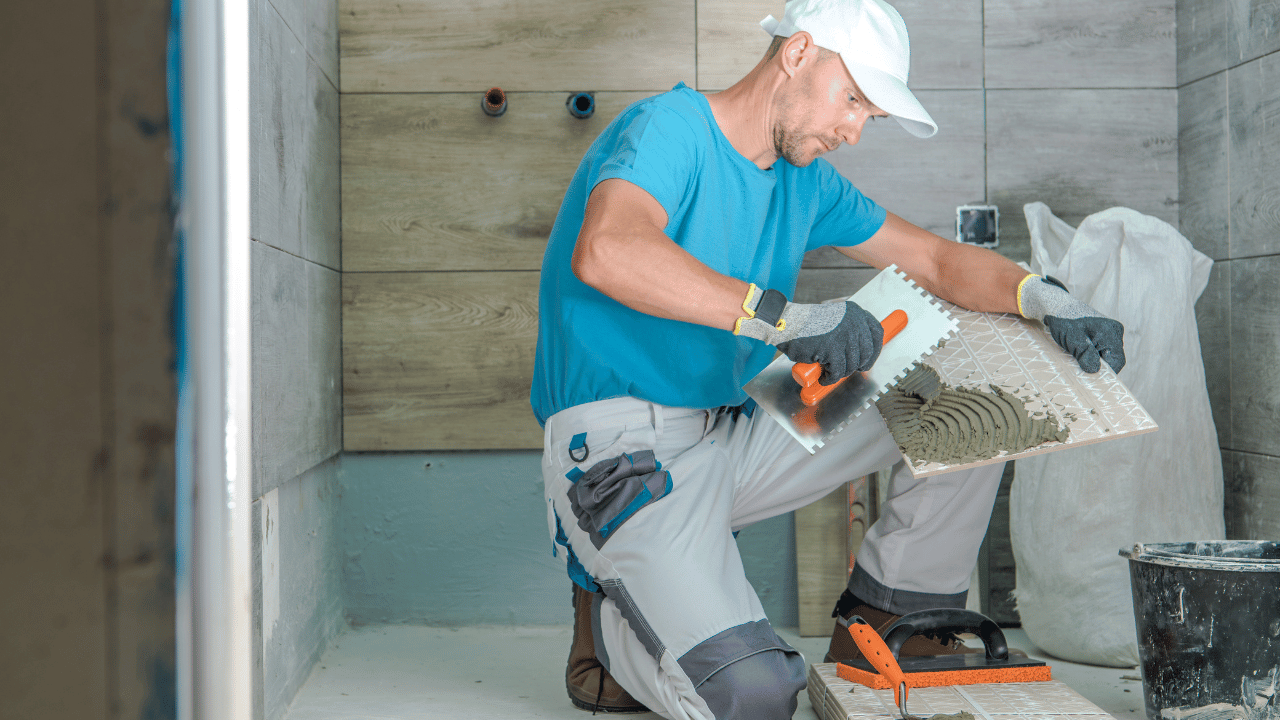Last Updated on October 10, 2023 by Pro Handyman Australia – Editorial Team
Embarking on a bathroom renovation journey can be both exhilarating and daunting. In the vast expanse of design options and aesthetic possibilities, one question often hovers in the minds of homeowners: “How much is this going to cost?” If you’re in Australia, you’re in luck. With the property landscape continually evolving and the nation’s love for home improvement undying, understanding the intricacies of renovation expenses becomes crucial. Welcome to our comprehensive guide on bathroom renovation costs in Australia. Whether you’re considering a minimalistic refresh or a grand overhaul, we’re here to shed light on every financial corner, ensuring you step into your renovation project with confidence and clarity.
Understanding Bathroom Renovation Costs in Australia
A bathroom renovation is not just about giving your space a fresh look but also a strategic investment in the value of your home. However, understanding the financial implications of such a project is crucial. Let’s delve deeper into the intricate details of the cost structures involved in a bathroom renovation in Australia.
Recent Market Dynamics and Expected Trends
The financial climate and market dynamics in the post-COVID era have understandably influenced material and labour costs, leading to an uptick. Fortunately, projections for 2023 hint at a potential decline in these costs, bringing relief to homeowners considering a renovation.
The Influencing Factors
Several variables determine the final figure on your renovation invoice, including:
- The dimensions of your bathroom
- The materials and fittings you opt for
- Variations in labour costs, which can differ based on your location
- Any required permit costs
Bathroom Renovation Price Brackets
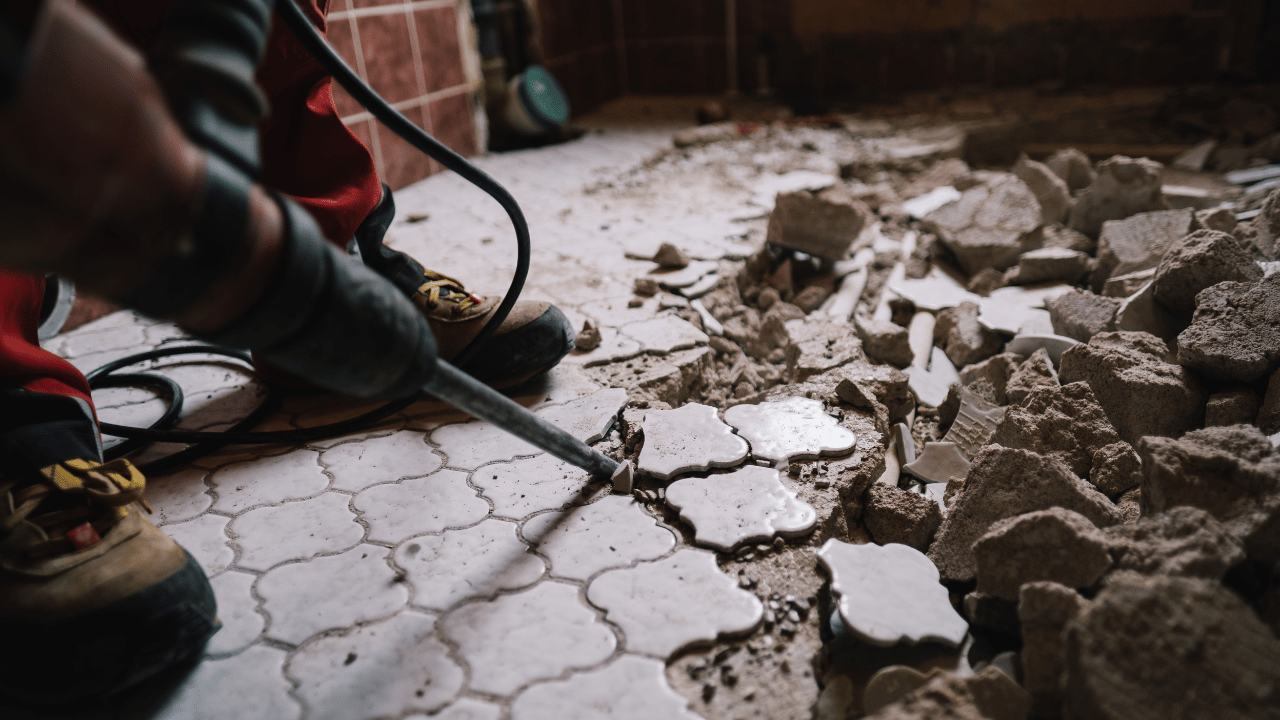
When budgeting for a bathroom renovation, it’s helpful to consider three primary cost tiers:
- Budget Renovation: $8,000 – $15,000
- Mid-range Renovation: $15,000 – $35,000
- Premium Renovation: $35,000 and above
For a better perspective, these brackets translate to:
- Budget – Basic upgrades or cosmetic changes, often using entry-level materials and fixtures.
- Mid-range – Moderate enhancements involving quality materials and fixtures suitable for an average-sized bathroom.
- Premium – A holistic transformation using the finest materials, often involving a complete revamp of space and possibly structural alterations.
Builders sometimes quote on a per-square-metre basis, with rates typically ranging from $2,300 to $4,600. The broad spread accounts for the diversity in material quality: budget, mid-range, or high-end.
Detailed Breakdown of Costs
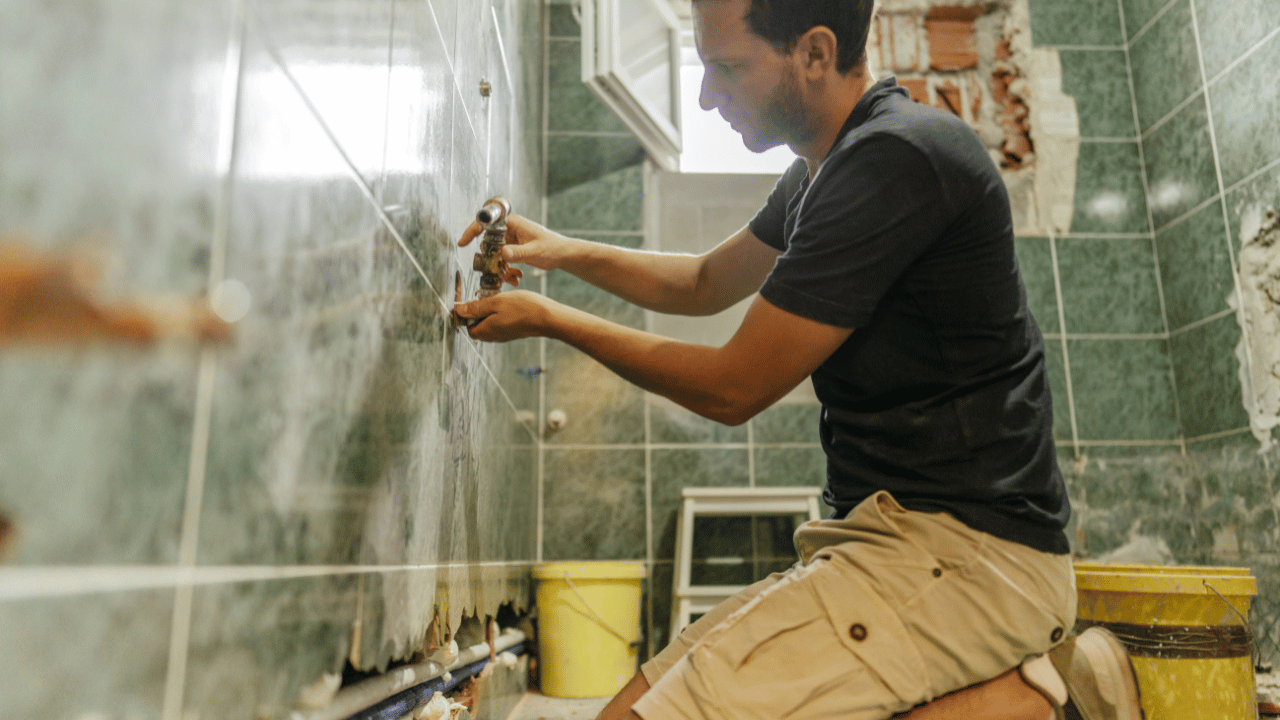
1. Budget Bathroom Renovation ($8,000 – $15,000)
At this price point, the renovation is primarily cosmetic or might involve replacing some items. Keeping within this budget means prioritizing large format porcelain tiles priced around $30 per square metre. These tiles are both durable and come in a rich array of colours. For new installations like showers, consider framed shower screens, standard back-to-wall toilets, and floor-mounted vanities.
2. Standard Bathroom Renovation ($15,000 – $35,000)
With this budget, there’s room for better materials and enhanced fittings. Homeowners can explore a wider variety of tiles, priced up to $50 per square metre, and might even opt for more intricate mosaics in certain areas like the shower. This budget also allows for upgrades like semi-frameless or frameless shower screens, larger or more sophisticated freestanding bathtubs, and elegant bathroom vanities. While there’s flexibility in modifying certain services, significant changes to plumbing or electrics might be off the table.
3. Premium Bathroom Renovation ($35,000 and above)
An investment in this bracket paves the way for a comprehensive overhaul. Significant layout and service modifications become feasible. Homeowners can indulge in luxurious fittings such as frameless shower screens, in-wall cisterns, and wall-hung vanities. Additionally, the creme de la creme of tiles becomes accessible, especially porcelain varieties in the $60 per square metre range.
Embarking on a bathroom renovation journey requires a clear understanding of costs, ensuring there are no financial surprises. Whether you’re leaning towards a modest upgrade or a lavish transformation, this guide aims to equip you with the knowledge needed to make informed decisions.
Navigating the Budgeting Process
Every successful bathroom renovation begins with a meticulously crafted budget. This entails digging deep into every cost, from materials and skilled labor to necessary permits. Without comprehensive planning, you risk going over budget or facing extended project timelines. It’s prudent to factor in a financial buffer of 10% to 20% to cover unexpected expenses, which can vary based on the bathroom’s size and renovation complexity.
Key Cost Factors in Bathroom Renovation:
- Plumbing: This will account for a significant portion, especially if you’re planning to relocate existing plumbing or add new fixtures.
- Tiling: Both floor and wall tiles will need to be factored in.
- Shower Screen: Prices vary between frameless, semi-frameless, and standard screens.
- Bath: Integrated or freestanding options come at different costs.
- Toilet: Options range from standard to in-wall cisterns.
- Vanity and Basin: You’ll need to decide between standard or wall-mounted designs. The latter offers a sleeker look and maximizes floor space.
- Tapware: Remember to include fittings for the basin, bath, and shower.
- Lighting: Consider various types such as task, general, or mood lighting.
- Waterproofing: A vital step to ensure no leaks in the renovated bathroom.
Let’s delve into the specific costs associated with these aspects, focusing on hourly labor rates and per square meter costs for materials.
Detailed Breakdown of Costs:
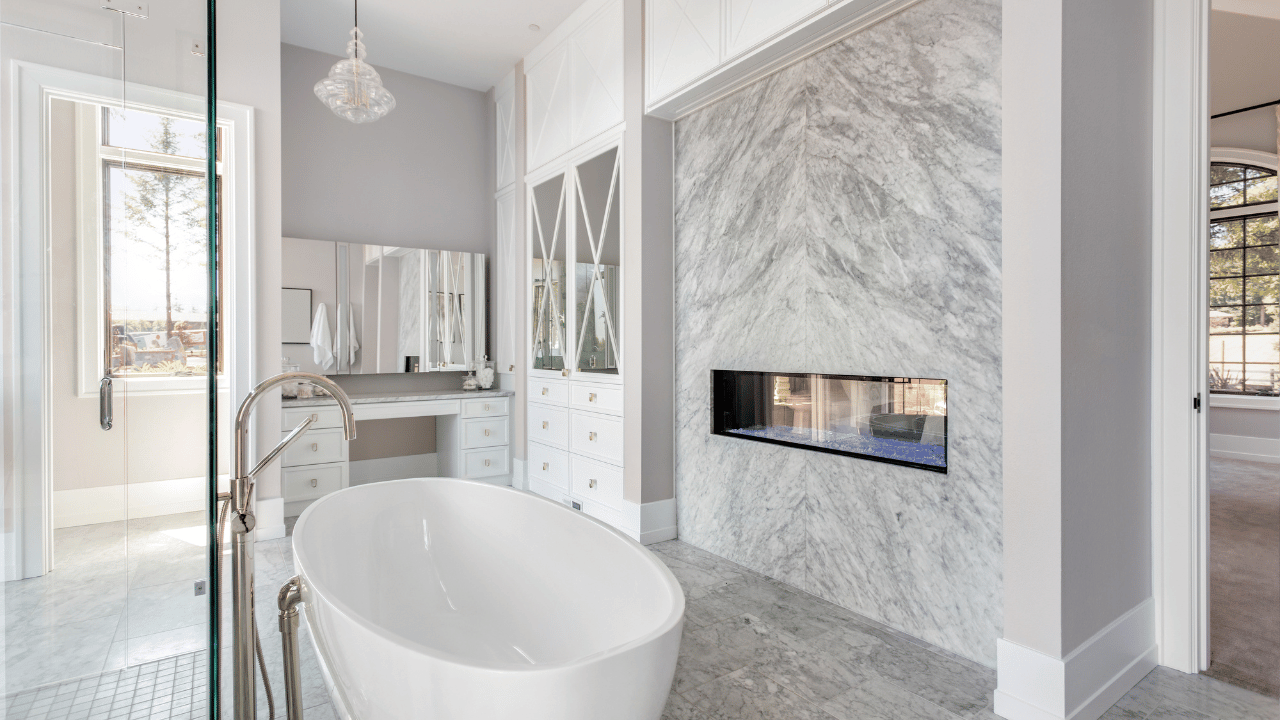
Bathroom Plumbing Costs
Plumbers usually charge a call-out fee between $60 and $100, with hourly rates ranging from $100 to $150. These charges may differ based on location and the plumber’s expertise. For extensive projects, it’s advisable to request an itemized quote detailing each element.
Bathroom Tiling Costs
The size of your bathroom greatly influences the renovation cost. Bathroom tilers typically charge on a per square meter basis, ranging from $35 to $120, with $60 being the average rate for laying tiles. This excludes the cost of tiles themselves. For tiles, the costs can vary based on their type, with prices spanning from $20 for standard white ceramic wall tiles to $159 for artisan-manufactured ceramic wall tiles.
Bathroom Bathtub Costs
Bathtub costs fluctuate based on materials. While you can get an acrylic or fibreglass tub at a lower end, natural stone bathtubs sit at the premium end, and installation by a plumber can start from $350.
Shower Screen Costs
Prices change depending on their size and framing. A basic framed shower screen installation can start at $400, while frameless screens, which utilize thicker glass, can cost upwards of $600.
Toilet Costs
Toilets vary in price from a modest $150 to a premium $750 or more. Typically, a high-quality floor-mounted vitreous china toilet ranges between $275 and $450.
Vanity Costs
Bathroom vanities can cost anywhere from $467 for a wall-hung design to $1,360 for a wall-hung vanity with an integrated ceramic basin.
Waterproofing Costs
Waterproofing an average-sized bathroom can set you back between $500 and $750.
Regulatory Considerations: Permits and Strata Approvals
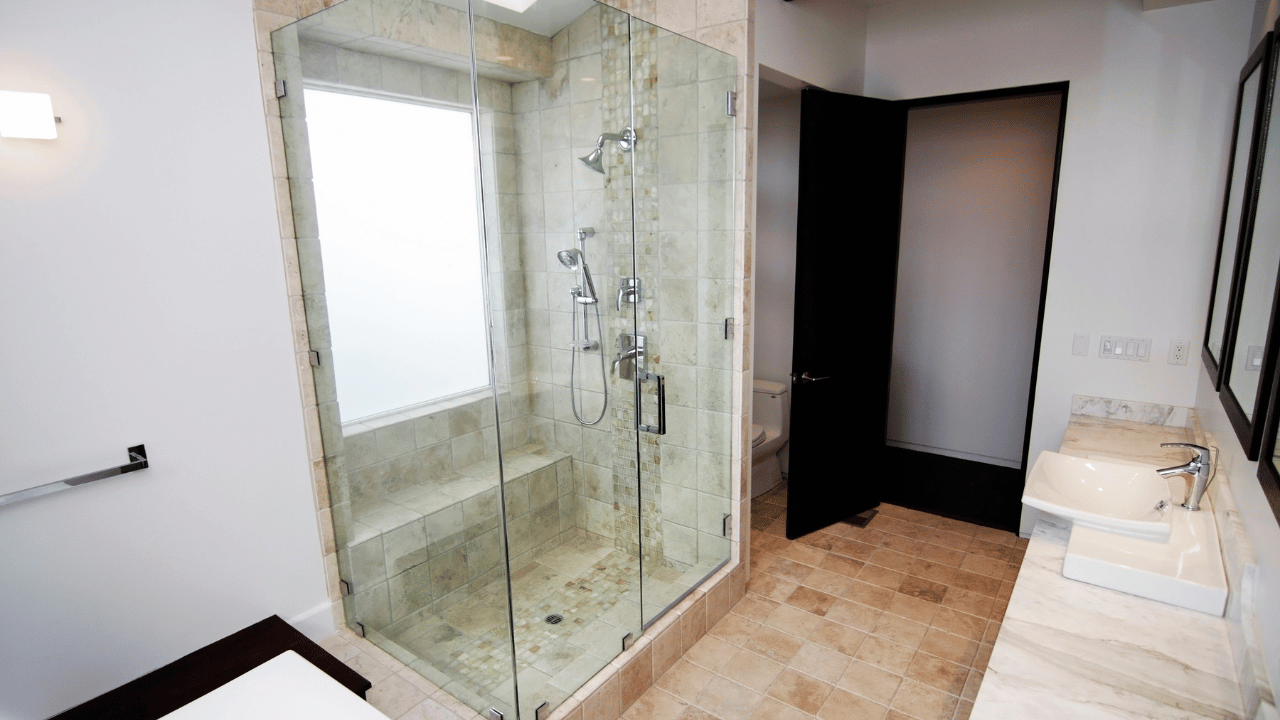
Council and Permits
Before initiating any renovation work, familiarize yourself with local council regulations, especially if you plan structural alterations that alter the floorplan. Regulations may differ by council and state, so diligent research is crucial. Your bathroom renovator or plumber can also provide guidance.
Strata Permission
For those living in a strata, there’s an additional layer of regulations concerning any work that affects common property. Approval is required for even minor renovations, ensuring licensed tradespeople are hired. Obtaining permission can be time-consuming as it involves presenting your plans at scheduled strata meetings.
Timeframe for Bathroom Renovation
Bathroom renovation is an intricate process that demands a well-thought-out plan. Let’s break down how long each step of this process typically takes and offer insights into what you can expect.
Initial Research, Planning, and Design Phase
- Research and Design: Expect the research and design phase, which includes obtaining quotes, to take around 1 to 4 weeks.
- Permit Acquisition: Depending on your locality and the changes you’re implementing, securing permits can take up to 4 weeks.
- Material and Fitting Selection: Choosing the right materials and fittings for your bathroom will usually span 2 to 4 weeks.
For a straightforward renovation without major structural adjustments, the entire planning phase might span 6 to 8 weeks. As for the hands-on construction and renovation work, you should allocate 1 to 4 weeks, keeping in mind that unforeseen challenges can extend this duration. Such challenges could be structural work, significant plumbing or electrical modifications, laying a vast number of tiles, or unexpected discoveries like asbestos.
Detailed Breakdown of Renovation Steps

- Demolition: For complete renovations that require replacing fixtures, fittings, and tiles, this noisy and dusty phase typically takes 2 to 3 days. Should structural adjustments be necessary, they would follow the demolition and potentially take a week or more.
- Service Alterations (Plumbing & Electrical): Changing plumbing fixtures or relocating electrical services involves core drilling or rerouting pipes and cables. Expect this to take 1 to 2 days, potentially longer for multi-level homes.
- Plumbing Rough-In: Here, pipework and wastes are installed, taking 1 to 4 days based on the bathroom’s dimensions.
- Electrical Rough-In: Electricians will wire up the space, a process lasting 1 to 4 days.
- Plastering: To smooth out walls for subsequent waterproofing and tiling, plastering might last up to 2 days.
- Waterproofing: Ensuring your space is water-resistant takes about 3 days, with drying times in between membrane applications.
- Cabinetry Installation: Installing vanities, shelves, and other storage solutions typically wraps up in 1 to 2 days.
- Screeding: Before tiling, tilers prepare the floor with screeding to ensure a level surface and proper drainage. Allow up to 3 days for this.
- Tiling: As tiles are tailored to fit, this step consumes 3 to 4 days.
- Plumbing Finalization: With the fixtures in place, expect this to take up to 3 days.
- Electrical Finalization: Final electrical installations, such as light fittings, span 1 to 2 days.
- Silicon Application: To seal all joints, a few hours are generally sufficient.
- Testing and Handover: The concluding step involves your contractor ensuring all systems function flawlessly and are leak-proof.
The duration of a bathroom renovation is influenced by various factors. Preparing and planning wisely can aid in streamlining the process and mitigating potential setbacks.
Selecting the Ideal Bathroom Renovator
Embarking on a bathroom renovation is an exciting journey. However, the success of this project often hinges on choosing the right contractor. Here’s a comprehensive guide to ensure you pick a professional who aligns with your vision and requirements.
Vital Queries for Your Potential Renovator
When in discussions with potential contractors, it’s crucial to ask pertinent questions to gauge their suitability. Consider inquiring:
- Licensing: Start by asking, “Do you hold a valid license?” This ensures that the contractor has met specific criteria and standards in their field.
- Insurance: It’s essential to know if they’re adequately covered, so pose the question, “Do you have the necessary insurance to work in residential properties?”
- Duration: As timelines can influence your decision, ask, “What is the estimated timeframe for completing the renovation?”
- Written Estimate: A clear cost structure can prevent future disagreements. Hence, request, “Can you provide a detailed written quote for the project?”
- References: To gauge their credibility and quality of work, inquire, “Could you provide references or testimonials from past clients?”
- Portfolio: Visual examples can offer a tangible sense of their work quality. Thus, it’s good to ask, “Do you have a portfolio showcasing your previous projects?”
Determining the Cost
A pivotal aspect of any renovation is the budget. To get an accurate sense of the financial investment involved, it’s advisable to obtain multiple quotations from local businesses that have a specialization in bathroom renovations. Comparing these quotes can offer valuable insights, and you might be intrigued by the variation in prices among different contractors.
Understanding the Trades Required for Bathroom Renovation
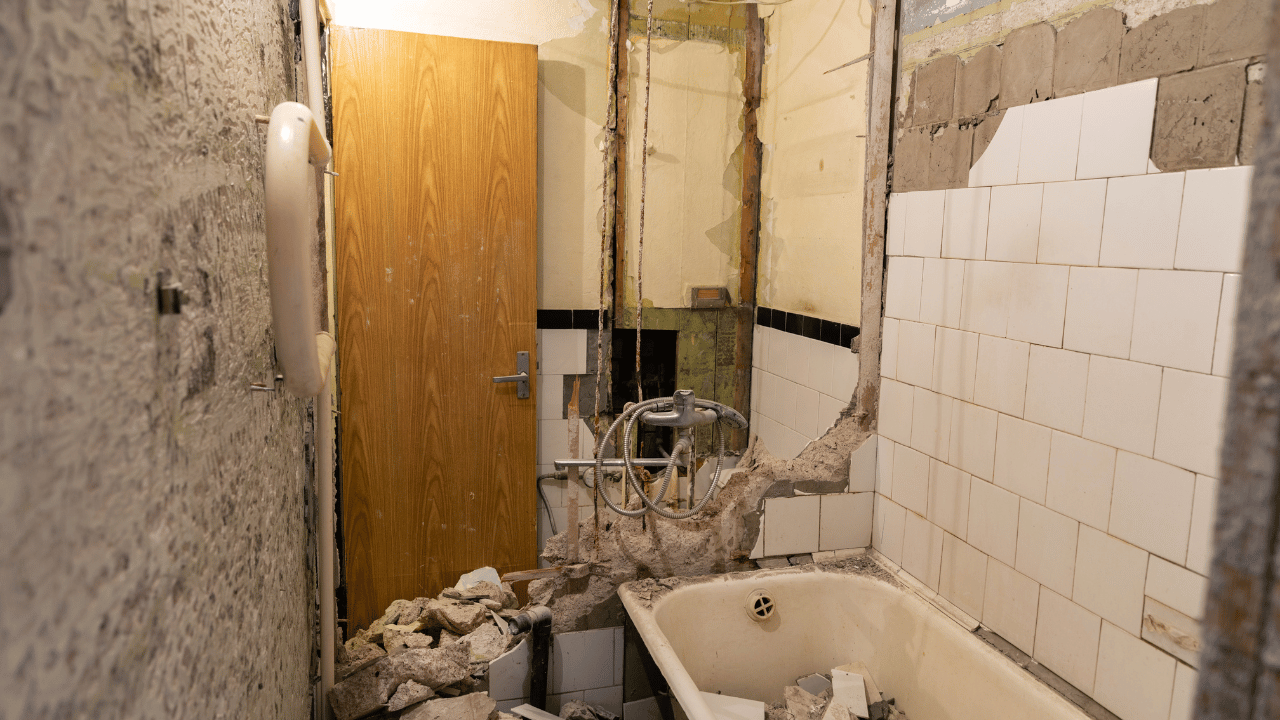
The Importance of Expertise Embarking on a bathroom renovation is no minor task, and unless you possess significant expertise, you’ll likely require the assistance of skilled tradespeople. The overall cost you’ll incur for these services can be influenced by several factors: the extent of work needed, the size of your bathroom, its accessibility, and even your geographic location. Understandably, services in urban centers often have higher rates compared to those in more regional settings.
Identifying the Required Trades To ensure your renovation runs smoothly, it’s crucial to identify all the necessary tradespeople you’ll need. Here’s a rundown of the common trades typically required:
- Tilers: Essential for waterproofing, as well as wall and floor tiling. Remember, legal stipulations in many regions mandate that only licensed tilers undertake waterproofing tasks. It’s pivotal to stay compliant with your local laws.
- Plumbers: If you’re contemplating relocating plumbing fixtures or introducing new ones, plumbers are indispensable. They also manage installations of showers, baths, toilets, and more.
- Electricians: Whenever there’s a need to install new light fixtures, underfloor heating, exhaust fans, heated towel rails, or water heaters, an electrician’s expertise is invaluable.
- Carpenters: Should you envision bespoke cabinetry or unique shelving solutions, carpenters are the go-to professionals.
- Handymen: Their skills are perfect for various tasks, ranging from demolition to addressing assorted minor jobs.
- Bathroom Designers: For those aspiring for an elite bathroom transformation, considering a bathroom designer can be beneficial.
- Painters: Any repainting tasks for walls, doors, or ceilings require a skilled painter.
Ensuring Your Tradespeople are Licensed Once you’ve shortlisted potential tradespeople, it’s paramount to verify their professional credentials. Platforms like Licence Hero can be a quick reference, but it’s also wise to consult with your state or local government bodies. For instance, residents of New South Wales can utilize the Service NSW platform to confirm a tradesperson’s license status. By taking this extra step, you ensure that your bathroom renovation meets quality and safety standards.
Navigating the Hunt for Reliable Tradies for Your Bathroom Renovation
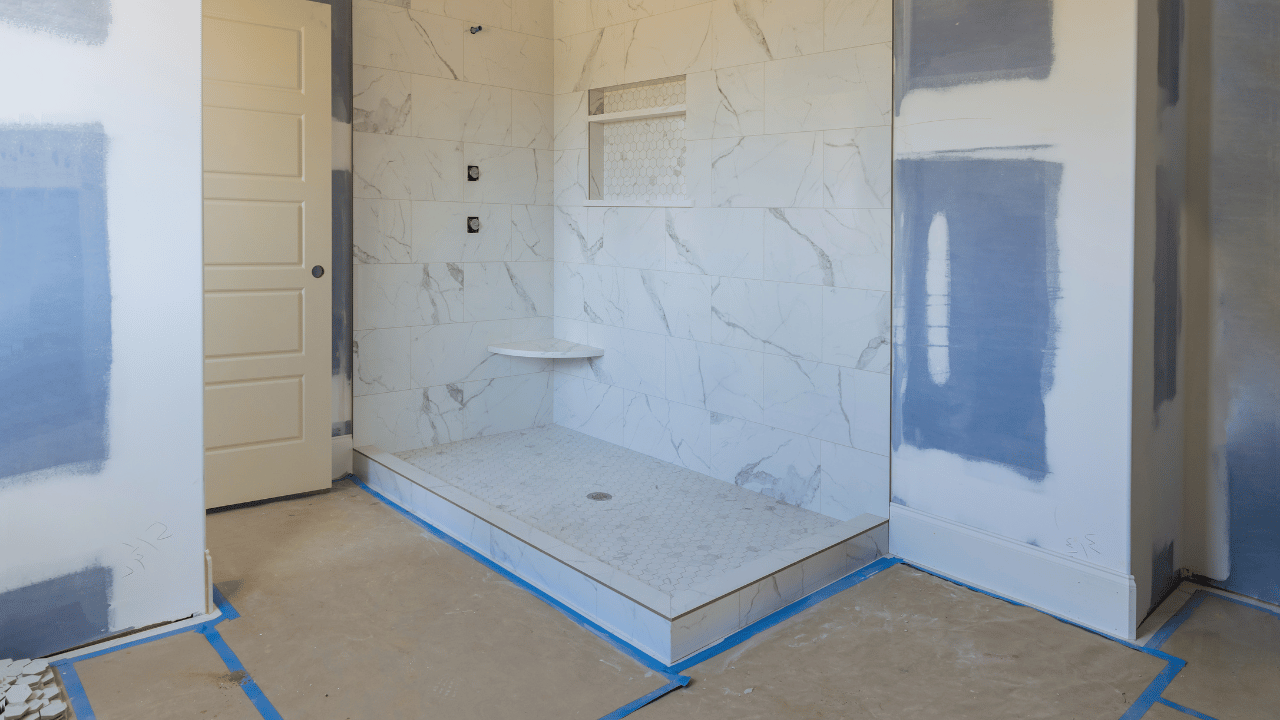
The Power of Personal Recommendations Word-of-mouth endorsements have stood the test of time, proving to be one of the most reliable ways to find trustworthy professionals. When on the hunt for a skilled tradesperson, start by seeking advice from those close to you – friends, family, colleagues, and acquaintances. This method often leads you to professionals known for their quality work, pleasant collaboration, and genuine integrity. As the renovation journey can be demanding, it’s crucial to avoid pitfalls like subpar craftsmanship or lackluster dedication. Therefore, try to gather multiple recommendations to find the tradesperson that aligns best with your needs.
Tapping into Tradie Networks If personal contacts don’t yield any results, consider revisiting tradespeople you’ve engaged before. Since they often collaborate on various projects, they’re typically well-connected within their community. A plumber you’ve had a positive experience with in the past might have connections with skilled painters or tilers, enhancing the chances of your bathroom renovation being a success.
Online Searches and Due Diligence Exploring online platforms is another avenue, though it requires a bit more diligence. When considering a tradesperson you’ve discovered online, especially one without a direct recommendation, it’s prudent to conduct a thorough background check. Ensure they possess the necessary licenses and delve into online reviews and feedback. Engaging them in a conversation and requesting testimonials or examples of their previous work can provide additional reassurance.
Comparing Quotes for Informed Decisions Always aim to secure at least three different quotes for the project. This not only gives you a clear perspective on the potential cost but also helps in discerning if any tradesperson might be overcharging. Consistent quotations across the board usually signify fair pricing and authentic market rates.
Maximizing Your Bathroom Renovation Budget

Strategies for Budget-Friendly Bathroom Upgrades Upgrading your bathroom doesn’t always mean emptying your wallet. By pinpointing areas of improvement, you can achieve remarkable results without going overboard. Before launching into full-scale renovation, assess what can remain unchanged. For many, a simple update like a new shower screen, modern tapware, or a fresh coat of paint can significantly elevate a bathroom’s aesthetic. If a complete transformation is not in the cards, consider alternatives like tile resurfacing, painting over tiles, or using overlays over the existing ones.
One cost-effective approach is to undertake a few DIY tasks, such as installing new tapware, setting up shelves, or painting. However, to maintain cost efficiency, avoid unnecessary tasks that would require professional involvement, especially tasks that can spiral in costs, such as moving existing plumbing. Although DIY can save expenses, it’s essential to recognize when professionals are needed. Legal requirements often necessitate licensed waterproofers, plumbers, and electricians for specific jobs.
Upgrading an Upmarket Home’s Bathroom When selling a premium property, especially in posh locales, the bathroom becomes a focal point for potential buyers. They expect a certain caliber of elegance and craftsmanship. Such homes warrant a thoughtful bathroom design, emphasizing high-quality fittings that resonate with the expected standards.
Aligning Renovation Costs with Home Value A balanced approach to renovation entails spending in alignment with your home’s overall value, ensuring the upgrades amplify the property’s worth. Ideally, the renovation should add double its cost to the home’s value. Extravagant installations, such as a luxurious freestanding bathtub, might not appeal to every buyer and can potentially deter some, especially if they feel the additions don’t justify the home’s price.
Consulting Experts for Tailored Advice If decision-making becomes challenging, consulting professionals like real estate home stylists or interior designers can offer clarity. They possess an in-depth understanding of local markets and can provide guidance on crafting a bathroom that attracts a broad audience without unnecessary expenditures. Their insights can ensure your renovation enhances appeal while keeping budgetary concerns in check.
Conclusion
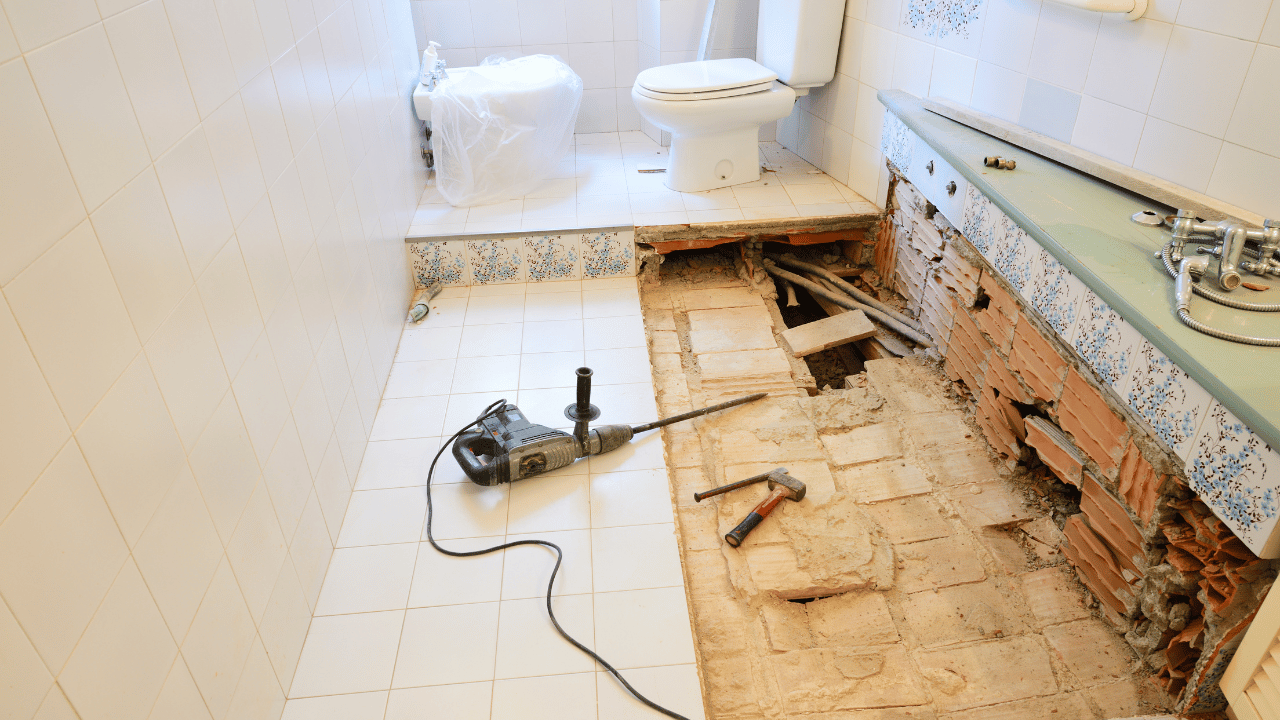
In Australia, bathroom renovation costs can vary considerably based on a multitude of factors, from the scale of the project to the quality of materials chosen, and even the region in which you reside. As homeowners traverse the path of transforming their bathroom spaces, it’s imperative to strike a balance between aesthetics, functionality, and budget. While some might be enticed by luxurious fittings and high-end finishes, others might opt for cost-effective, yet durable solutions. By gathering multiple quotes, understanding regional price variations, and being well-informed about potential unforeseen expenses, Australians can embark on a bathroom renovation journey that not only elevates their living space but also offers value for money. As with any significant home project, the key lies in meticulous planning, diligent research, and open communication with chosen professionals. Whether you’re in bustling Sydney or the serene coasts of Queensland, understanding the financial landscape of bathroom renovations is your first step towards a successful and satisfying makeover.
